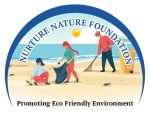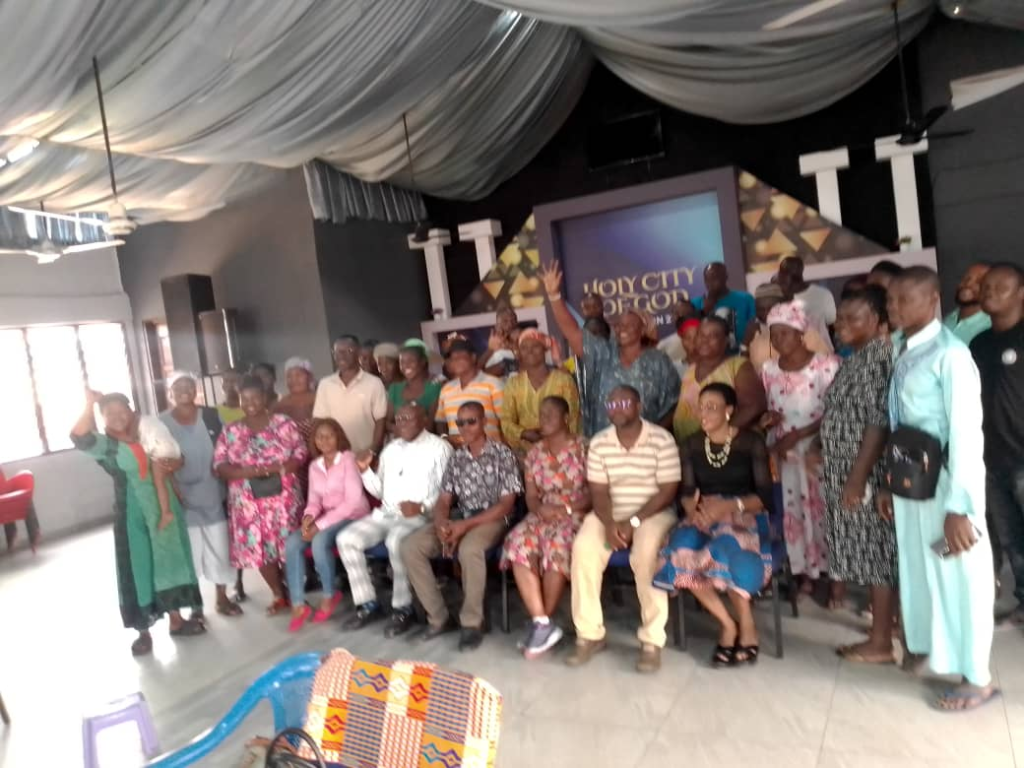Date: 29th July, 2025
Venues: Anointing Revival Church Auditorium-Shaibu; Apostolic Church Ghana Auditorium, Glefe and AMA Zonal Council Office, Jamestown-Accra
Introduction:
The West Africa Coastal Areas Resilience Project (WACA ReslP 2), which Ghana joined in 2024 is a response by some West Africa countries with support from World Bank and other Development Partners to manage their coastal areas to address coastal erosion, flooding, pollution, restoring coastal ecosystems especially mangroves and securing livelihoods.
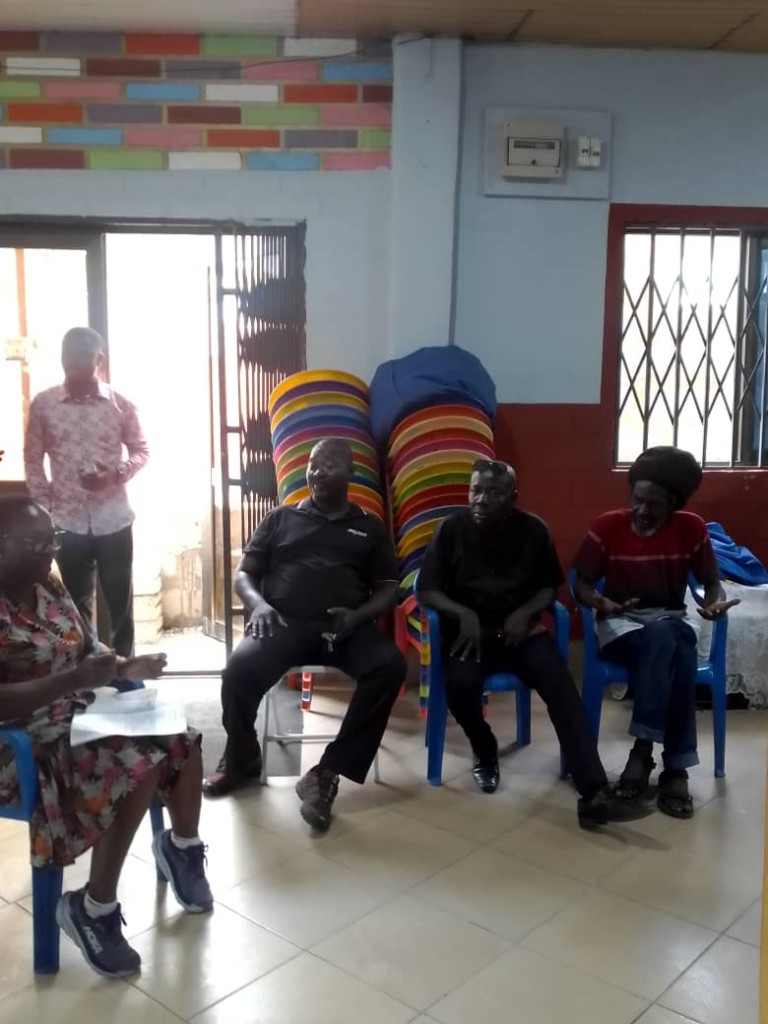
Therefore, in addressing these challenges, some members of the Coastal CSOs Forum joined a team of Consultants from WACA on Tuesday the 29th of July, 2025. The consultants were led by Mr. Peter Owusu Donkor of Spatial Solutions Consulting Limited and Mr. Stephen Kankam of Hen Mpoano. The WACA-CCF members were from Nurture Nature Foundation (NNF), Fill the Gap Africa and Hope for Africa. NNF was represented by the Executive Director, Peter Asiedu, Fill the Gap Africa was represented by Ms. Vida Akekodaga and Hope for Africa was represented by Desmond Benneh and Linda Owusu Sekyere. The meetings were organized in three different places namely; Shaibu and Glefe Communities in the Ablekuma West Municipality and Jamestown Community in the Accra Metropolis. The objective of the consultants was to engage the communities to verify the variations in their livelihoods and needs assessments for future financial support and community developments projects. In each community, about 25 persons were interviewed. Therefore a total of about 80 persons participated. The first meeting started at 10.18am at Shaibu Electoral Area in the Ablekuma West Municipality with one of the consultants, Peter Owusu Donor asking some questions. The consultants asked the attendees to enumerate the challenges facing them in the communities. They mentioned among other things that the road network was bad, indiscriminate dumping of rubbish in the community and poor drainage system. The consultants asked each person what business activities they were into. The participants plied their businesses from charcoal selling, cement blocks making and waste picking to tailoring and dressmaking, food vending and mini-supermarkets operators amongst others. The consultants also wanted to know if any participant wanted a change in business, to which two persons responded in the affirmative. Also a participant said she wanted to learn a trade .This was well noted.
Below:One of the consultants making a point at the meeting at Shaibu community
Now, the second sets of questions were on how much each person would need and the month they will need the funds. The participants at Shaibu mentioned amounts between GHS3,000 and GHS 50,000.The participants at Glefe mentioned amounts ranging from GHS1,000 to GHS 100,000 at this point the consultants cautioned that participants must be reasonable and take into consideration the current economic challenges and that they should understand that the funds are not for free but to support their businesses.
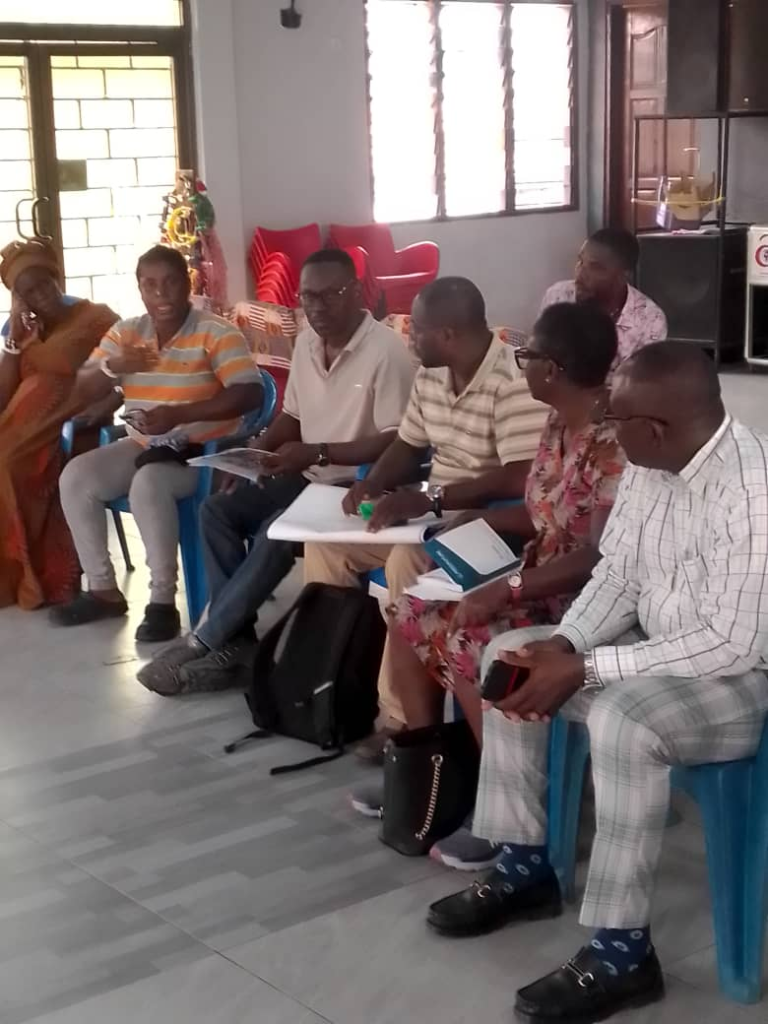
Above: Consultants listening to a contribution by a participant at Shaibu community
At Jamestown, they wanted amounts between GHS1,000 and GHS10,000. They mentioned that there will be no interest attached to the funds but must be repaid within a reasonable period but responded that the disbursement would be done through the banking system when the participants had asked that it should be done through mobile money system. At Shaibu, the participants agreed that they will need the funds in August 2025 but at Glefe and Jamestown they said they want the funds in September or October 2025.
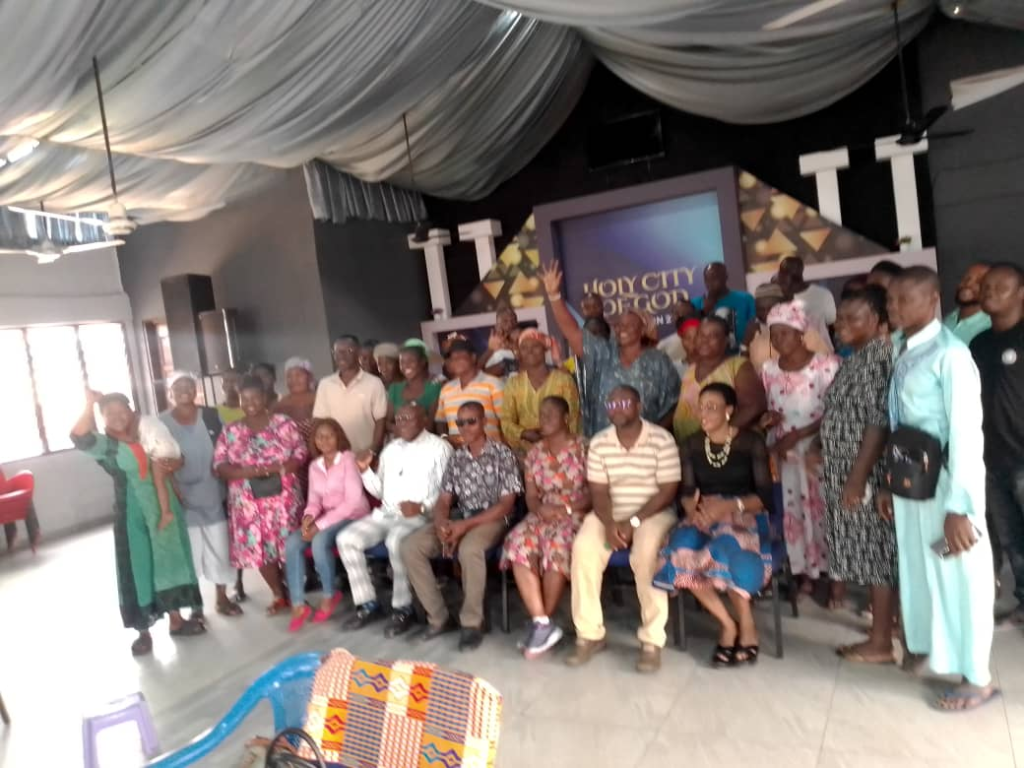
Group photograph at Glefe community in Ablekuma West Municipality after the meeting. Seated are the members of the WACA-Coastal CSOs Forum (CCF) and the consultants
One question that created a little debate was on the suggestion by the consultants to let a team lead each beneficiary to buy the products, wares or goods that they want to resell or trade in. A participant who sells tuna fish at Shaibu said they do not agree because it takes a lot of time to buy fishes and it will be time wasting for the team to go to market with each participants. But the attendees finally agreed to the proposal from the consultants to let a team lead the beneficiaries and also help in the first disbursements.
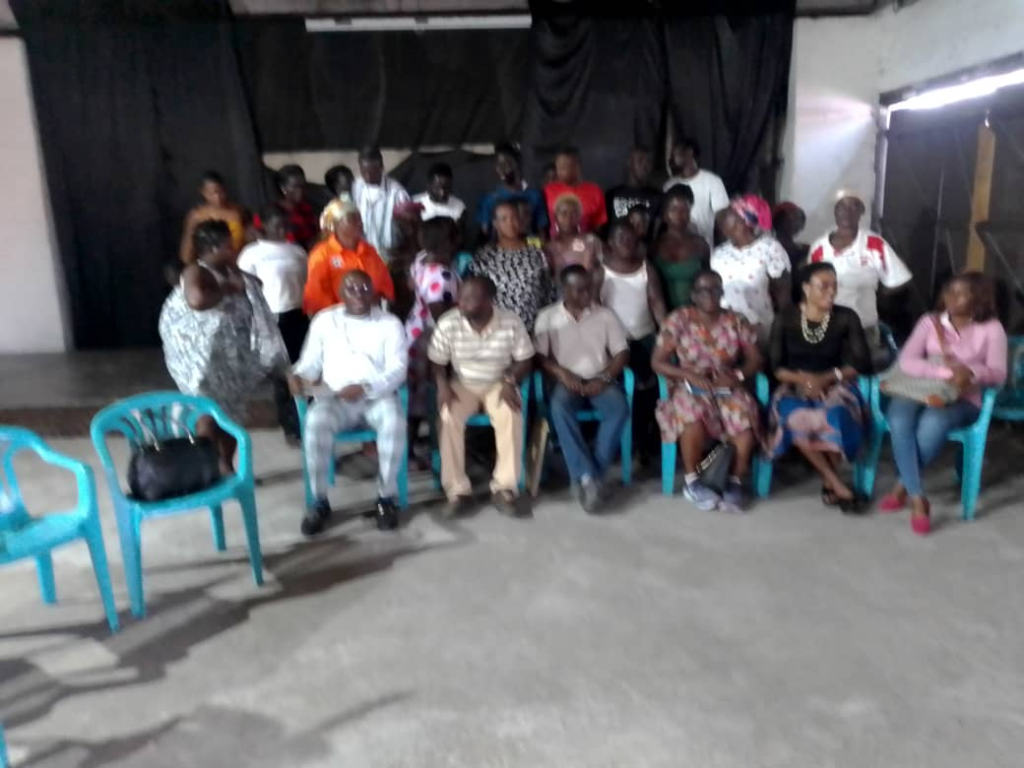
At Glefe and Jamestown, the participants gladly accepted the option that a team should lead and purchase the wares, products or goods they will need to stock for resale or use in their business trading. The consultants also stressed that the participants should spread the news such that all business owners and traders can access the funds because it is for the affected community dwellers and not only for those who have participated in the consultative meetings.
As such nobody should be left out in the communities. It is noteworthy to mention that in two out of the three communities where the meetings were held, Nurture Nature Foundation (NNF) was mentioned as the only NGO that coordinates and supports beach cleaning and plastic waste collections. It became clear that NNF has supported beach cleaning and even organized training on waste collection programme at Aburi. It further came to light that NNF organized financial management literacy training for about 100 traders and market women at Jamestown. The participants accepted that NNF should lead the process of filling the forms for all the beneficiaries in the three communities.
MEDIUM –TERM DEVELOPMENT PLAN (MTDP) SESSION
The second session looked at the Medium-Term Development Plans (MTDP) of the two Assemblies and participants were asked to rank them in order of importance. At Shaibu, twenty out of the twenty-eight participants ranked first, the provision of cold store amongst the seven small infrastructure under the programme. Provision of waste management facilities and Bins and skid containers were ranked second. Upgrade of the health facility at the coast was ranked third, provision of ICT equipment (computers) for the schools was fourth with the participants rejecting the provision of canned fish factory at the community.
Below: During ranking process at Shaibu community
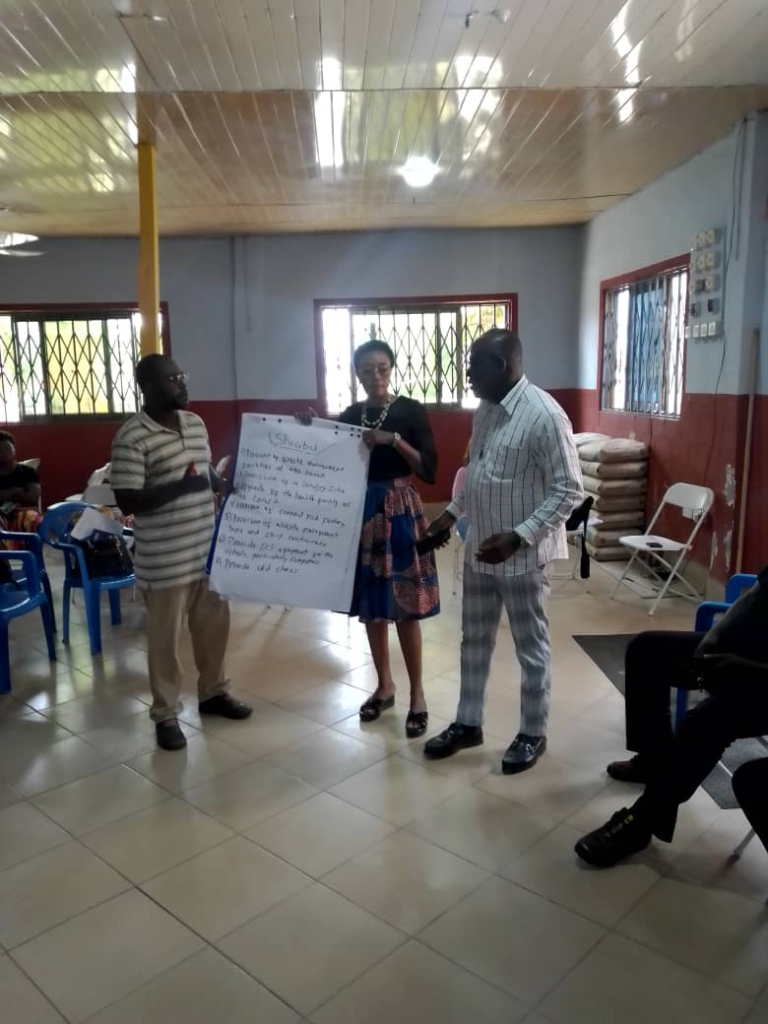
At the Glefe community, the small infrastructure to be provided under the programme were nine. All the thirty-six (36) participants ranked the upgrade of roads and drainage extension as a first priority. Twenty-seven (27) ranked both provision of waste management facilities at the beaches and provision of waste management bins and skid containers as second priority with twenty-six (26) accepting the provision of ICT equipment (computers) in schools as the third priority. Twenty-three persons (23) ranked fourth the provision of a health facility at the community.
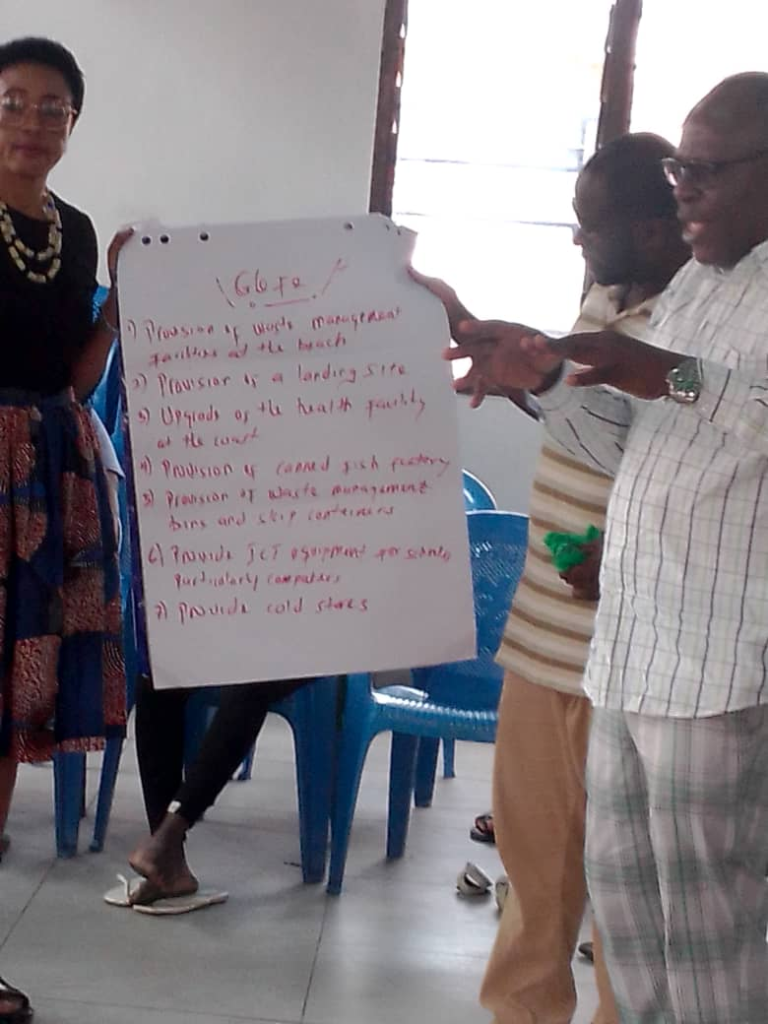
At the Jamestown community, twenty-one(21) attendees ranked upgrade of drainage facilities, provision of ICT equipment(Computers) and provision of waste collection bins and points in the various parts of the coastal area first, followed by provision of recreational parks for coastal communities , with the provision of storage facilities and facilities to process and can fish being ranked last.
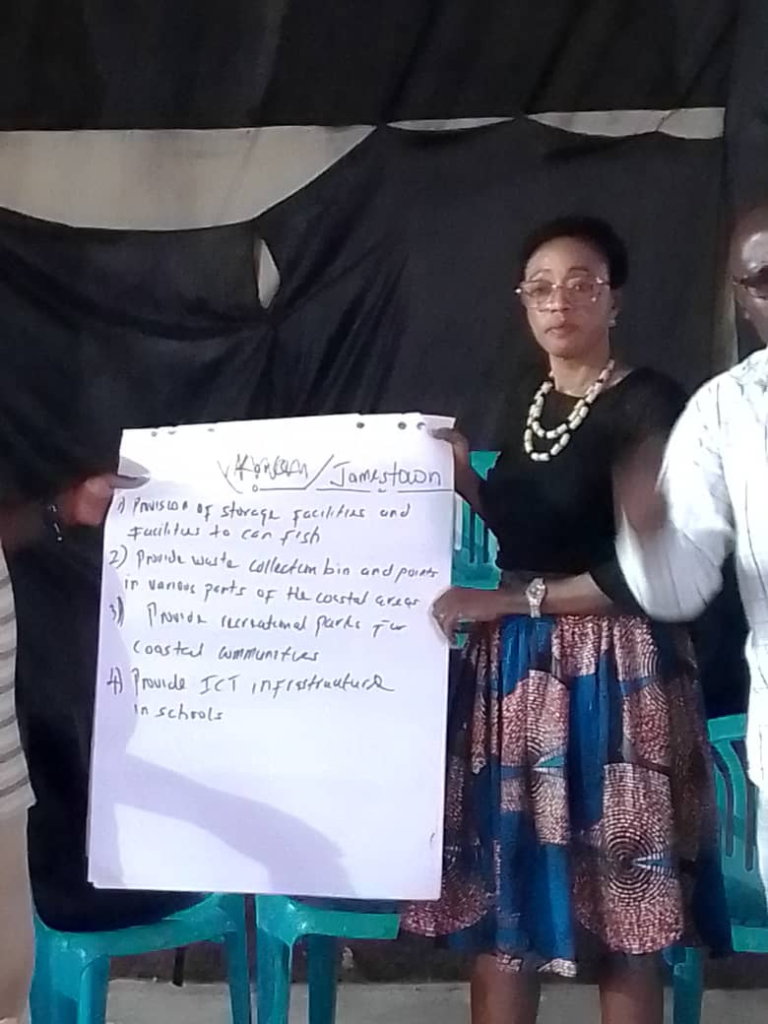
Report by:
Philip Nkrumah
Director of Administration
Nurture Nature Foundation
